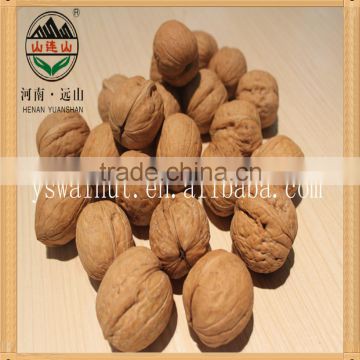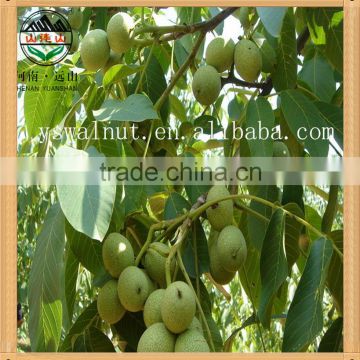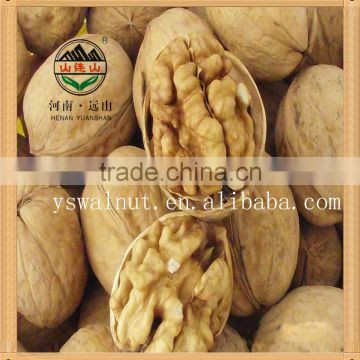Walnuts
Product description
Product Description
INTRODUCTION
Walnuts are a delicious complement to ice cream, desserts, salads, sauces, pasta, cheese and fruit jelly. They are also used in baking, cake-making, in the preparation of a range of foods including chocolate and sweets, as walnut oil and to accompany a variety of recipes.
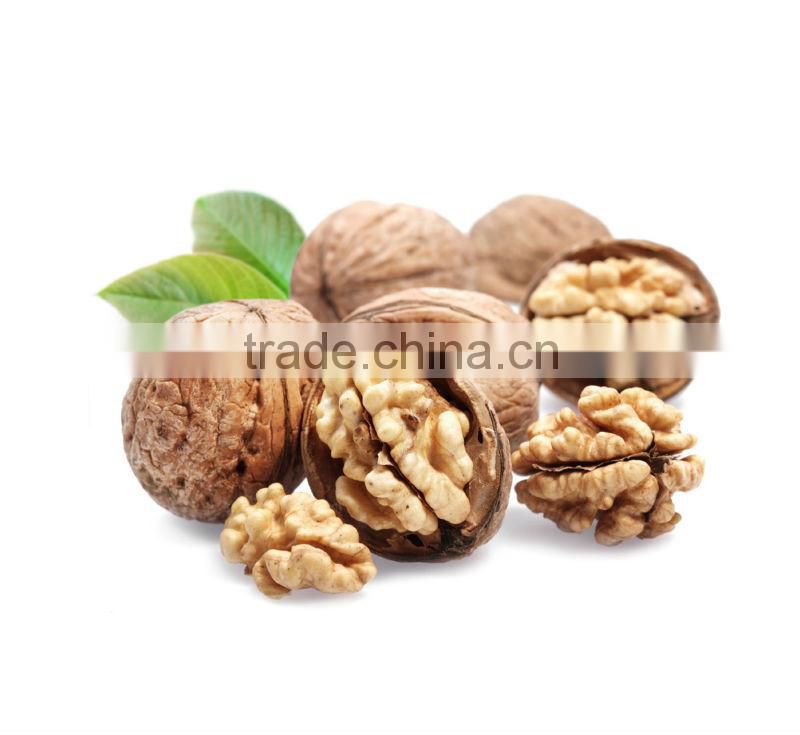
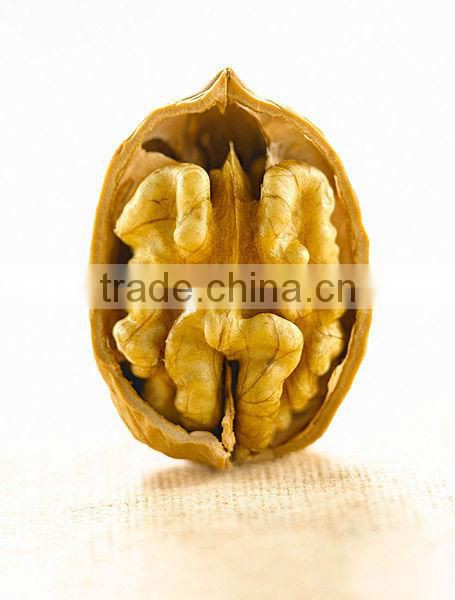

Known and consumed since prehistoric times, walnuts have widely-varying origins, from eastern Asia to south-east Europe and north and south America. Over fifteen varieties of the Juglandacea family exist, but the most highly-considered is Juglans Regia, known as the Persian or English walnut.
The Greeks called the walnut kara (head) due to its resemblance to the human brain. The Romans considered it the food of the gods while all the ancients agreed that walnuts were associated with health and a good memory.
COMPOSITION AND HEALTH BENEF
NUTRITIONAL COMPOSITION OF WALNUTS
Calorific content (kcal) | 674.0 | ||
| Proteins (g) | 14.5 | ||
| Carbohydrates (g) | 11.1 | ||
| Fibre (g) | 5.9 | ||
| Total fat content (g) | 63.8 | ||
| Fatty acids | saturates (g) | 5.2 | |
| unsaturates | monounsaturates (g) | 11.6 | |
| polyunsaturates (g) | 44.2 | ||
| Cholesterol (mg) | 0 | ||
| Vitamin E (mg)* | 2.92 | ||
Phytosterols (mg)* | 72.0 | ||
Values in % of weight (g/100 g of foostuff).
Favier JC, Ireland-Ripert J, Toque C, Feinberg M. Répertoire général des aliments.
Table de composition. INRA Ed, 1995
* USDA. Nutrients in 100 g of tree nuts, 2002.
90% of the fats in walnuts are unsaturated; they contain the omega-3 and omega-6 essential polyunsaturated fatty acids which reduce the cholesterol level in the blood and ward off heart disorders. These
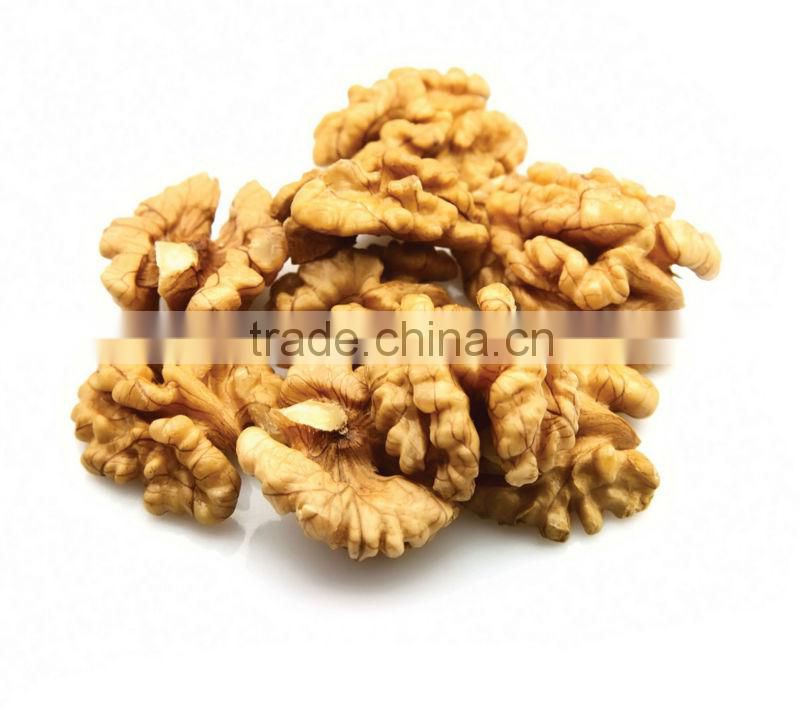
fatty acids distinguish walnuts from other tree nuts and most other foods. Walnuts contain saturated and polyunsaturated fatty acids in a ratio of 1 to 7, a proportion which is difficult to find in other natural foods. Daily consumption, replacing saturated fats, reduces the risk of cardiovascular disorders.
Walnuts are the healthiest nuts for the heart. They contain considerable amounts of alphalinolenic acid (6.8% of the fat content), linked to the reduction of cholesterol.
Walnuts are a worthwhile source of vegetable proteins, with a significant arginine content which is also liked to the prevention of cardiovascular disorders.
Walnuts are considered to be an important antioxidant thanks to their vitamin E content. This helps prevent ageing, certain types of cancer and cardiovascular disorders. They provide appreciable amounts of vitamins B1 and B6 which help the muscles and brain to work well. They also provide minerals such as copper, zinc, potassium, magnesium and phosphorus.
Walnuts are rich in fibre, which is beneficial for colon transit and prevents several types of cancer, including that of the colon.
RECOMMENDATIONS
Walnuts are therefore recommended for people with heart disorders, high cholesterol levels in the blood, high blood pressure, diabetes and people with a family background of such problems.
Furthermore, given the prevalence of cardiovascular disorders in industrialised societies, they are to be recommended for the population in general as a preventative measure with a view to the future.
Walnuts are also recommended for vegetarians
Different studies show that individuals who frequently consume tree nuts have a much reduced risk of suffering from cardiovascular illnesses.
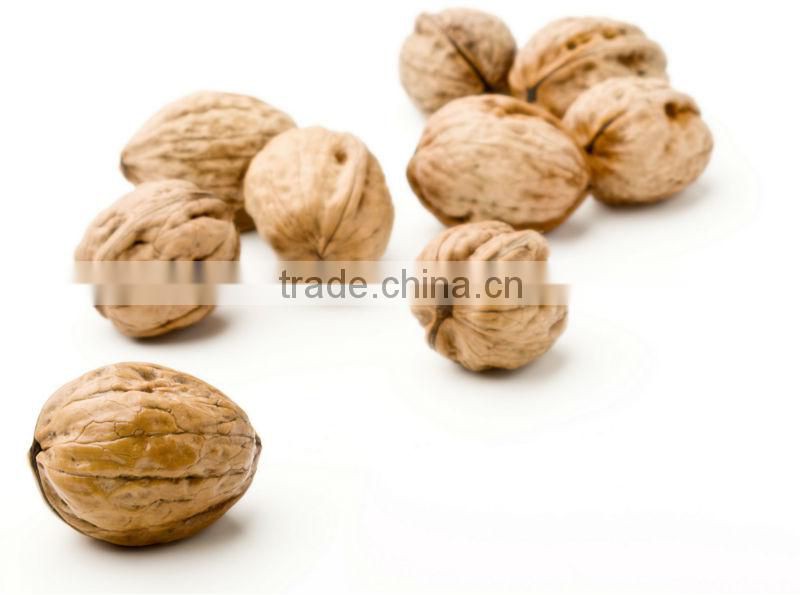
Do not hesitate to contact us for the best quote.
Recommended products

